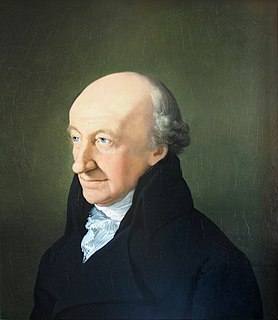A Quote by George S. Patton
A real man will never let his fear of death overpower his honor, his sense of duty to his country, and his innate manhood.
Related Quotes
Let no one imagine that he will lose anything of human dignity by this voluntary sell-out of his all to his God. He does not by this degrade himself as a man; rather he finds his right place of high honor as one made in the image of his Creator. His deep disgrace lay in his moral derangement, his unnatural usurpation of the place of God. His honor will be proved by restoring again that stolen throne. In exalting God over all, he finds his own highest honor upheld.
It is the duty of a prudent minister of God to hold his ministry in honor and to see to it that it is respected by those who are in his charge. Moreoever, it is the duty of a faithful minister not to exceed his powers and not to abuse his office in pride, but, rather, to administer it for the benefit of his subjects.
His face set in grim determination, Richard slogged ahead, his fingers reaching up to touch the tooth under his shirt. Loneliness, deeper than he had never known, sagged his shoulders. All his friends were lost to him. He knew now that his life was not his own. It belonged to his duty, to his task. He was the Seeker. Nothing more. Nothing less. Not his own man, but a pawn to be used by others. A tool, same as his sword, to help others, that they might have the life he had only glimpsed for a twinkling. He was no different from the dark things in the boundary. A bringer of death.
Depending on the year or the therapist he was seeing, he'd learned to ascribe just about every facet of his character as a psychological reaction to his parents' fighting: his laziness, his overachieving, his tendency to isolate, his tendency to seduce, his hypochondria, his sense of invulnerability, his self-loathing, his narcissism.
Man in his raw, natural state as he comes from the womb is morally and spiritually corrupt in disposition and character. Every part of his being-his mind, his will, his emotions, his affections, his conscience, his body-has been affected by sin (this is what is meant by the doctrine of total depravity)
When a woman submits to a man, it's the most precious gift she can give. Herself. Unreservedly. The man has to respect and honor that gift above all else. Even if he respects nothing else in the world, he must respect the woman in his care. It's his sworn duty to protect, honor and cherish his submissive. To take care of her and provide a safe haven. Someone who would put his own needs above his woman's is no man.
Patriotism, or the peculiar relation of an individual to his country, is like the family instinct. In the child it is a blind devotion; in the man in intelligent love. The patriot perceives the claim made upon his country by the circumstances and time of her growth and power, and how God is to be served by using those opportunities of helping mankind. Therefore his country's honor is dear to him as his own, and he would as soon lie and steal himself as assist or excuse his country in a crime.



































